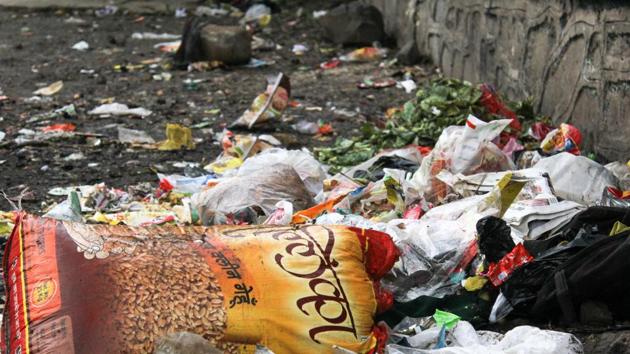Can a filthy city qualify as ‘Smart City’?
There is no sight of piling garbage or overflowing bins in the Aundh area (Smart City pilot project) but an impromptu garbage dumping ground has suddenly emerged on DP Road, alongside the narrow bridge connecting D-Mart to the Aundh-Ravet Road.
About ₹2,200 crore of our money is going to be spent on the Smart City pilot project that is centered around the upmarket localities of Aundh, Baner and Balewadi. These localities have been chosen because the basic infrastructure is in place, undertaken in preparation for the Commonwealth Youth Games in 2008.

Driven by a SPV (special purpose vehicle- a separate company to execute Smart City projects), these three localities will be blessed by battery operated buses, power-saving street lighting which will automatically switch on and off; a smart Internet of Things (IOT) garbage collection system under which garbage bins will have sensors to send alerts via SMS to ward officers and other such sophisticated infrastructure. Well-designed cycle tracks and housing for the poor have also been planned.
Pune municipal commissioner Kunal Kumar has been spending enormous time, effort and resources on this project and he has already earned a good name as an able IAS bureaucrat in the high echelons of power. The first, visible showcase of the pilot now exists in the form of the half kilometre stretch on Aundh Road. The footpaths are broad and beautiful, dry and wet blue-green dustbins are in place and street artworks have been installed. In fact, something else was planned with benches and flower pots on one side of the road, but all of that was ripped apart to make way for what exists now.
There is no sight of piling garbage or overflowing bins on this stretch or in the Aundh area but an impromptu garbage dumping ground has suddenly emerged on DP Road, alongside the narrow bridge connecting D-Mart to the Aundh-Ravet Road. Piles of garbage have been thrown on the empty stretch after D-Mart, in the backyard of Aundh Smart City. The typical Indian mentality is to sweep the garbage out of the house or shop front, or throw it in the nearest empty plot available, but not take the effort to dispose it correctly. Is this what is happening with the garbage of Aundh Smart City?
Pune city generates about 1,800 tons of garbage every day, and an additional 200 tonnes during major festivals. The increasingly robust consumerist lifestyle coupled with the growth in online shopping is adding to the city’s garbage, by an estimated 100 tonnes daily on a year-to-year basis.
As such, Pune’s garbage and acute traffic congestion have emerged as the twin crises staring in the face of the city. Both have been growing in magnitude year after year, overwhelming not just the Pune Municipal Corporation (PMC) but other planning bodies too. While traffic congestion can be agonising, piled up, stinking garbage has to be cleared instantly. Otherwise, it could lead to a myriad of diseases, the biggest of which are malaria and dengue.
Over the last decade, the PMC has put into motion various initiatives to deal with the huge quantities of garbage generated in the city. These initiatives have ranged from the 1,000 metric tons capacity garbage-to-compost processing plant at Urli Devachi village (which failed); encouraging vermiculture garbage processing at housing society level and putting up 18 biogas plants in various localities to process wet waste into biogas. (Not all of these plants are working to full capacity and a few have closed down completely.).
Pune also has the well-organised waste pickers association led by SWaCH (Solid Waste Collection and Handling) Sewa Sahakari Sanstha Limited. Even though these initiatives have won accolades, huge heaps of unattended garbage in many parts of the city suggest a high degree of inefficiency in the city’s garbage collection and disposal. Complaints from citizens are being received by this newspaper from different parts of Pune.
Nothing can be more basic to a city’s health and sanitation than swift and efficient garbage clearance and disposal. Is the long distance Smart City project truly smart? Or is it a case of misplaced priority?



